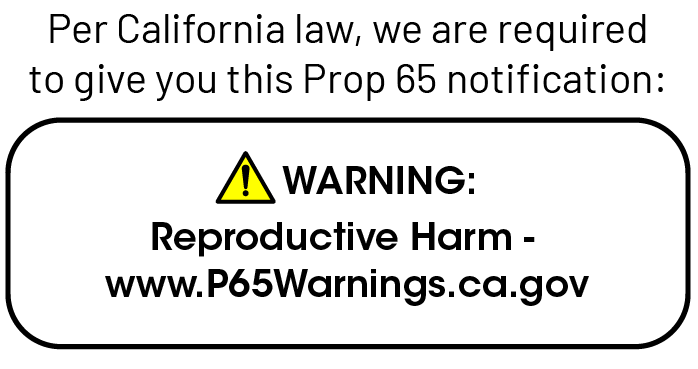Everything You Need To Know Before Using Vitamin C Serum
Posted by Dr. Hannah Sivak and Brendan Leonard on May 29th 2020
When we’re growing up, we might come to associate Vitamin C with brilliant images of delicious looking orange juice on television or in magazines. But more and more now we are hearing that we need to apply vitamin c to our skin as well. Why is this? And what is the best way to go about it?
Well, the simple answer is that we need to get vitamin c from nature because our bodies don’t produce it on our own, even though we need it to live and be healthy! Along the way, humans lost the enzymes necessary to produce our own vitamin c, while animals kept theirs.
So now, we have to make sure that we are eating enough citrus and peppers to be sure. But if we want to get the maximum benefit from vitamin c, we have to apply it topically as well.
5 Benefits of Using Vitamin C Serum
But what are the benefits that you should be looking for? Read on.
Antioxidant - Whenever we talk about skin health, we’re going to immediately start talking about oxidation. Unavoidable exposure to free radicals is what’s aging you and possibly leading to other health concerns, so the antioxidant properties of vitamin c are vital to that ongoing challenge.
Vitamin C antioxidants have also been linked to addressing free radical damage caused by UV exposure. This won’t replace sunscreen, which should always be a part of your daily routine. But if you are the kind of person who likes to spend a lot of time outdoors, or you especially enjoy the feeling of the sun on your arms, consider working some vitamin c into your routine.
Anti-Inflammatory - Vitamin C has some nice anti-inflammatory properties that you’ll want to benefit from as well. These properties don’t only address inflammation and redness, but can decrease wrinkles as well.
Collagen Synthesis - Vitamin C interacts with water instead of oil. This is important because it means that vitamin C can get into cells where collagen synthesis is taking place. The genetic structure of collagen interacts with vitamin C well and additionally, vitamin c addresses a number of functions of the cell, which is all-around good for your health.
Exfoliation - A lot of people favor vitamin C for it’s exfoliative properties, but you shouldn’t fall into the temptation to overdo it. A mild exfoliation is good, but skin health is our overall goal so remember one of the class Skin Actives lessons: less is sometimes more. We’ll talk about why more below.
Even Tone - Vitamin C has been shown to affect the distribution of melanin. This means that if you are getting areas with too much or too little pigmentation, getting some vitamin c might help even that out over time.
Do’s and Don’ts with Vitamin C
Don’t combine with copper or zinc in formulations - If you are working on becoming a DIY skincare guru, don’t mix copper or zinc into your vitamin C formulations. Copper and zinc will throw off the ph balance of your formulation. Low acidity is best and what keeps vitamin C from becoming an irritant. Now if only other skincare companies would take our advice!
20% is approaching maximum solubility - We sell two levels of vitamin c in our bestselling Vitamin C Serum, 15% and 20%. Based on the sales numbers we get the feeling that a lot of people feel like “more is more.” But you don’t have to go that strong. 20% is approaching the maximum solubility that vitamin can handle.
Short shelf life - The shelf life on vitamin C products is 6 months. At Skin Actives we’re very up front about it. If you want to get the most out of your vitamin c serum, consider refrigerating it. Also, check the manufacture and expiration date on the vitamin c products you have on your shelf. Products over 12 months will not have skin affecting activity left in them, regardless of the printed use-by date.
Tips for Getting The Most Out Of Your Vitamin C Skincare
Here are some uses of Vitamin C Serum that you might consider:
Use a vitamin C PRODUCT daily - This means you should be using a product that has vitamin c in it as an active ingredient daily, not necessarily our Vitamin C Serum. Once or twice a week is plenty for the potency of our Vitamin C Serum.
If you have sensitive skin, use a non-acidic form such as MAP, you may find that L-Ascorbic Acid is too hard on your skin.
When combining products for your skincare routine, most other products are fine for use after vitamin C application. But do wait about an hour before using products with high tech proteins like EGF. The vitamin c might overwhelm the proteins and render them ineffective.
Apply for the day, retinol at night - Because of its UV damage prevention qualities, vitamin c products are perfect for balancing out use with retinol, which can be damaging when exposed to sunlight. Consider applying your vitamin c serum product in the morning before work, and then retinol in the evening before bed.
Try one of our Vitamin C Serums or Vitamin C Toner today. 10% off for a limited time. In the United States, standard shipping is always free.

